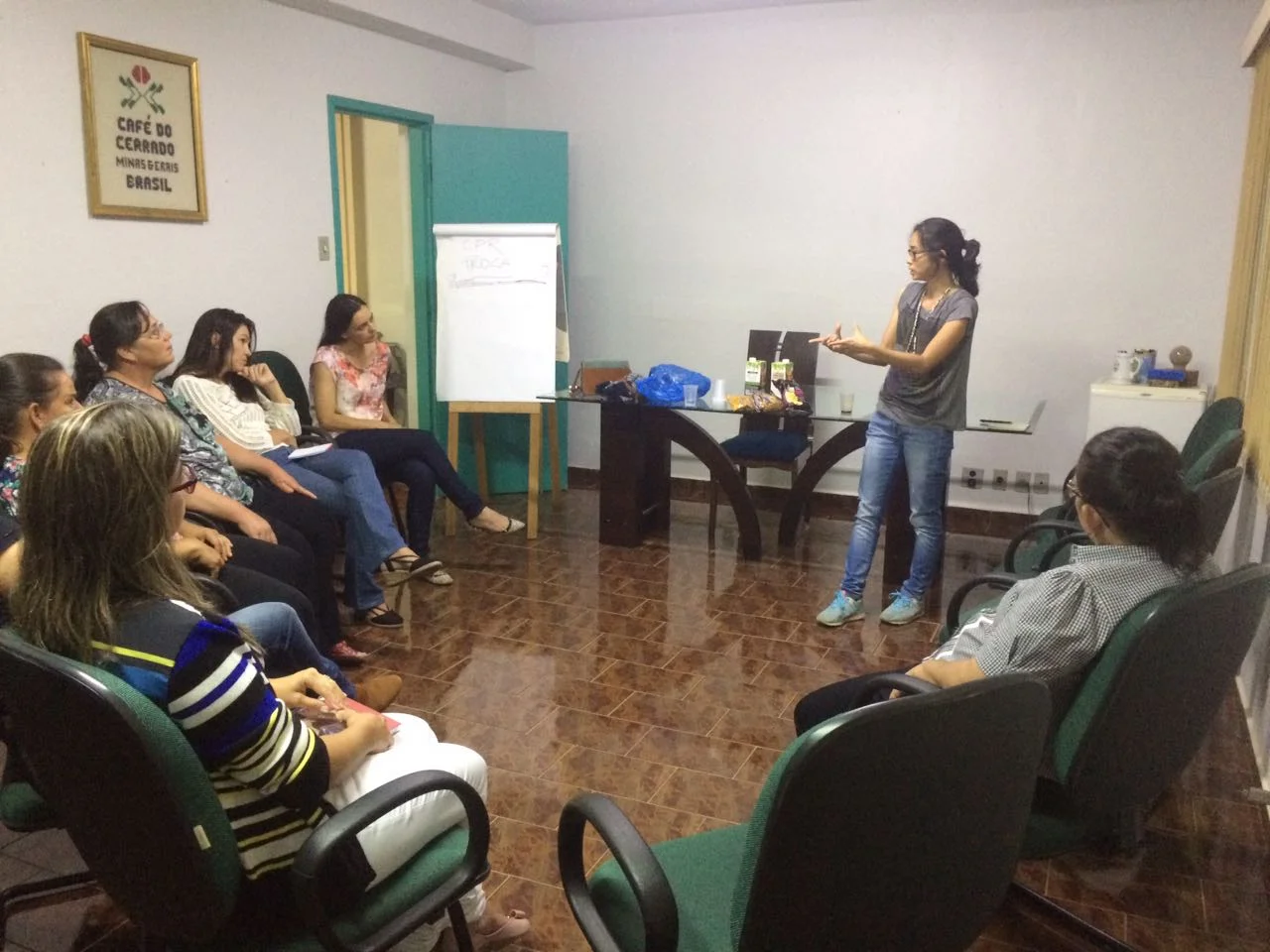Besides looking for promoting producers from the region of Sao Gotardo, Aequitas is focused in addressing gender equity with women producers from IWCA Brazil chapter, especially from the Cerrado Mineiro sub-chapter. I participate in many coffee events and most of them have notable majority of men producers, but gradually there's been created a room for women, as now we have some meetings exclusively for women producers where we talk about many subjects.
At first women are shy, as they're not used to have a space for sharing their experiences and opinions. We see several kinds of women producers, the ones who are active involved in farming activities, others who dedicate more time in household activities but are starting to have a voice in production that normally it's the husbands' territory, daughters of producers who are undergoing to family business succession (which is also my case). In the end, inhibition disappears and everyone shares what they have been doing for improvements in coffee quality, situations within their families by the increase in their participation in decisions related to coffee, and many other stories. It's rewarding to witness how those women growers feel more empowered and confident after each event.
On March 30th 2017, with the help of PhD. professor Raquel Santos Soares Menezes from Federal University of Viçosa, a researcher of the topic women in business and an active member of IWCA Cerrado Mineiro, I met a group of 5 women producers who are engaged in producing high-quality coffee. We presented Aequitas mission that is fostering connections with the specialty coffee market in a transparent and equitable relationship. We talked about each one’s story in coffee production, how they felt about the way their coffee is traded, the importance of cupping their own coffee, post-harvesting techniques, etc. We explained about the traditional coffee journey through supply chain, the Aequitas market access model, how C-market influences coffee prices, differentials, costs for exporting, etc.
Finally, as part of our commitment in building a company focused in understanding the producers’ needs we asked them to tell what Aequitas could offer them, as we’re interested in building together a bilateral relationship that it’s more than just buying and selling coffee. All producers asked for transparency. An aspect that many roasters values is also a request for these women. They shared their curiosity in learning where their coffee go to and transparency in the traded price. At the end of the meeting, the producers committed to looking for a coffee tasting course, as they realized the importance of checking if the whole processes they’ve been applying throughout the coffee plantation are resulting satisfactory cupquality.
What excites me the most in every meeting is the possibility of mobilizing women and exchanging experiences. Our next step is already defined: gathering again after harvesting season to roast and cup our samples and debating each other processes and experiments.




